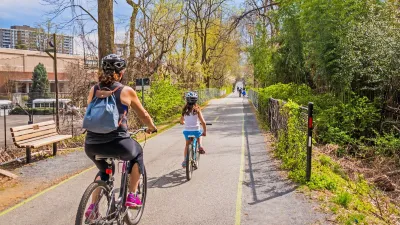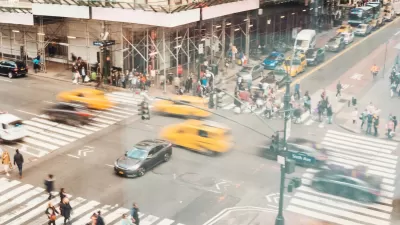Despite a commitment to eliminating traffic deaths by 2030, 2022 is shaping up to be the deadliest year in more than a decade.

Judging by the latest numbers, Seattle’s efforts to reach the Vision Zero goal of eliminating traffic fatalities have not been successful, reports David Kroman in The Seattle Times. “In each of the first five months of the year, the number of deaths and serious injuries exceeded the previous three-year average.” Meanwhile, “At 30 deaths, 2021 was the deadliest year in Seattle since 2006, proving the city to be no exception to the nationwide spike in traffic deaths.” As Kroman notes, “Of the 11 who died so far this year, four were walking, two were biking and five people were either a driver or passenger inside a car. The toll of Seattle’s traffic issues falls disproportionately on bikers and walkers.”
Data shows the burden also falls most heavily on vulnerable groups and low-income communities. “Analysis by city staff shows Black people disproportionately die in traffic crashes and that 27% of 2021’s fatalities were people experiencing homelessness over the previous five years.”
The Seattle Department of Transportation (SDOT) says they are focusing on implementing ‘safe systems design,’ an approach that works to shift blame away from victims and address infrastructural solutions that allow for human error while making it less deadly. “Priorities include making shorter pedestrian crossing, converting more lanes to transit or bike use, broadening corners in intersections to slow vehicle turns and possibly prohibiting turning right on red.”
FULL STORY: Seattle traffic deaths and injuries remain high in 2022

Alabama: Trump Terminates Settlements for Black Communities Harmed By Raw Sewage
Trump deemed the landmark civil rights agreement “illegal DEI and environmental justice policy.”

Planetizen Federal Action Tracker
A weekly monitor of how Trump’s orders and actions are impacting planners and planning in America.

The 120 Year Old Tiny Home Villages That Sheltered San Francisco’s Earthquake Refugees
More than a century ago, San Francisco mobilized to house thousands of residents displaced by the 1906 earthquake. Could their strategy offer a model for the present?

In Both Crashes and Crime, Public Transportation is Far Safer than Driving
Contrary to popular assumptions, public transportation has far lower crash and crime rates than automobile travel. For safer communities, improve and encourage transit travel.

Report: Zoning Reforms Should Complement Nashville’s Ambitious Transit Plan
Without reform, restrictive zoning codes will limit the impact of the city’s planned transit expansion and could exclude some of the residents who depend on transit the most.

Judge Orders Release of Frozen IRA, IIJA Funding
The decision is a victory for environmental groups who charged that freezing funds for critical infrastructure and disaster response programs caused “real and irreparable harm” to communities.
Urban Design for Planners 1: Software Tools
This six-course series explores essential urban design concepts using open source software and equips planners with the tools they need to participate fully in the urban design process.
Planning for Universal Design
Learn the tools for implementing Universal Design in planning regulations.
Clanton & Associates, Inc.
Jessamine County Fiscal Court
Institute for Housing and Urban Development Studies (IHS)
City of Grandview
Harvard GSD Executive Education
Toledo-Lucas County Plan Commissions
Salt Lake City
NYU Wagner Graduate School of Public Service





























